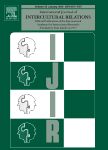Inburgeringsplichtigen komen met een leven aan ervaring en inzichten naar Nederland. Die voorgaande kennis kan overeenkomen, maar ook botsen met Nederlandse waarden en normen. Sociaal met taal is een beproefde, participatieve methode voor inburgering die inspeelt op thema’s, vragen, conflicten en pijnpunten die dicht bij de ervaringen en belevingswereld van de inburgeraars staan. Door middel van waardevolle gesprekken en reflectie in de groep kunnen deelnemers beter participeren in de Nederlandse maatschappij en leren ze daarnaast sneller Nederlands. In deze aanpak wordt ook gebruikgemaakt van de moedertaal.

VOOR BEGELEIDERS/DOCENTEN: 5 x supervisie € 2.500,- BTW vrijgesteld*
VOOR BESLISSERS: workshop randvoorwaarden € 495,- BTW vrijgesteld*
*Supervisie á 2 uur voor 1-5 personen. Workshop á 1,5 uur voor max. 15 personen. Activiteiten op locatie of hybride, in overleg. Reiskosten worden apart in rekening gebracht. Deze onderwijsactiviteiten zijn BTW-vrijgesteld via Vantrood Educational Services.



